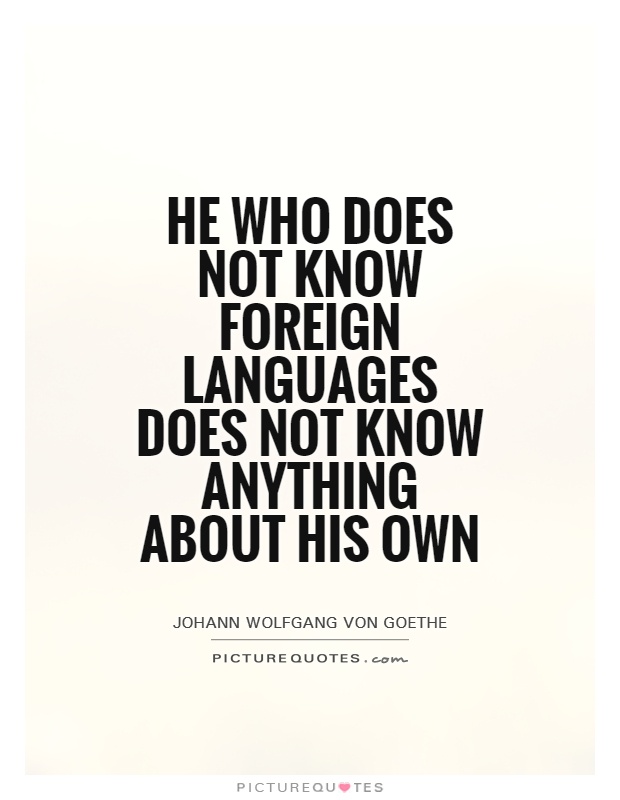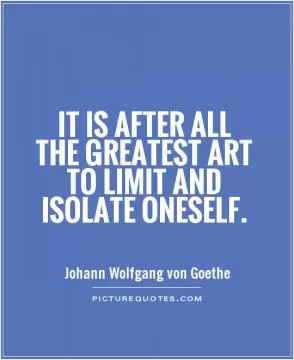He who does not know foreign languages does not know anything about his own

He who does not know foreign languages does not know anything about his own
Johann Wolfgang von Goethe, the renowned German writer, poet, and statesman, was a firm believer in the importance of learning foreign languages. He famously said, "He who does not know foreign languages does not know anything about his own." This statement reflects his belief that learning other languages is essential for gaining a deeper understanding of one's own language and culture.Goethe himself was a polyglot, fluent in several languages including German, French, Italian, Latin, Greek, and English. His proficiency in these languages allowed him to read and appreciate a wide range of literature and philosophy from different cultures. This exposure to diverse perspectives enriched his own writing and thinking, making him one of the most influential figures in German literature.
For Goethe, learning foreign languages was not just about practical communication skills, but also about intellectual and cultural enrichment. By studying other languages, he believed that one could gain insight into different ways of thinking, different worldviews, and different ways of expressing ideas. This, in turn, could deepen one's understanding of their own language and culture.
In today's globalized world, Goethe's words ring truer than ever. With the increasing interconnectedness of cultures and societies, knowing foreign languages has become a valuable skill for personal, academic, and professional growth. Learning a new language opens up new opportunities for communication, travel, and cultural exchange. It also helps to break down barriers and foster understanding between people from different backgrounds.












 Friendship Quotes
Friendship Quotes Love Quotes
Love Quotes Life Quotes
Life Quotes Funny Quotes
Funny Quotes Motivational Quotes
Motivational Quotes Inspirational Quotes
Inspirational Quotes